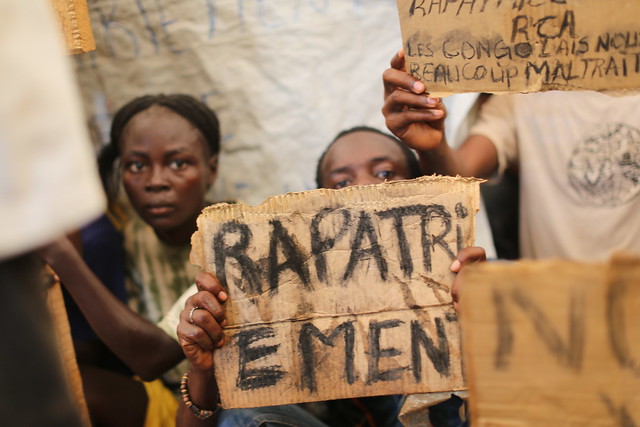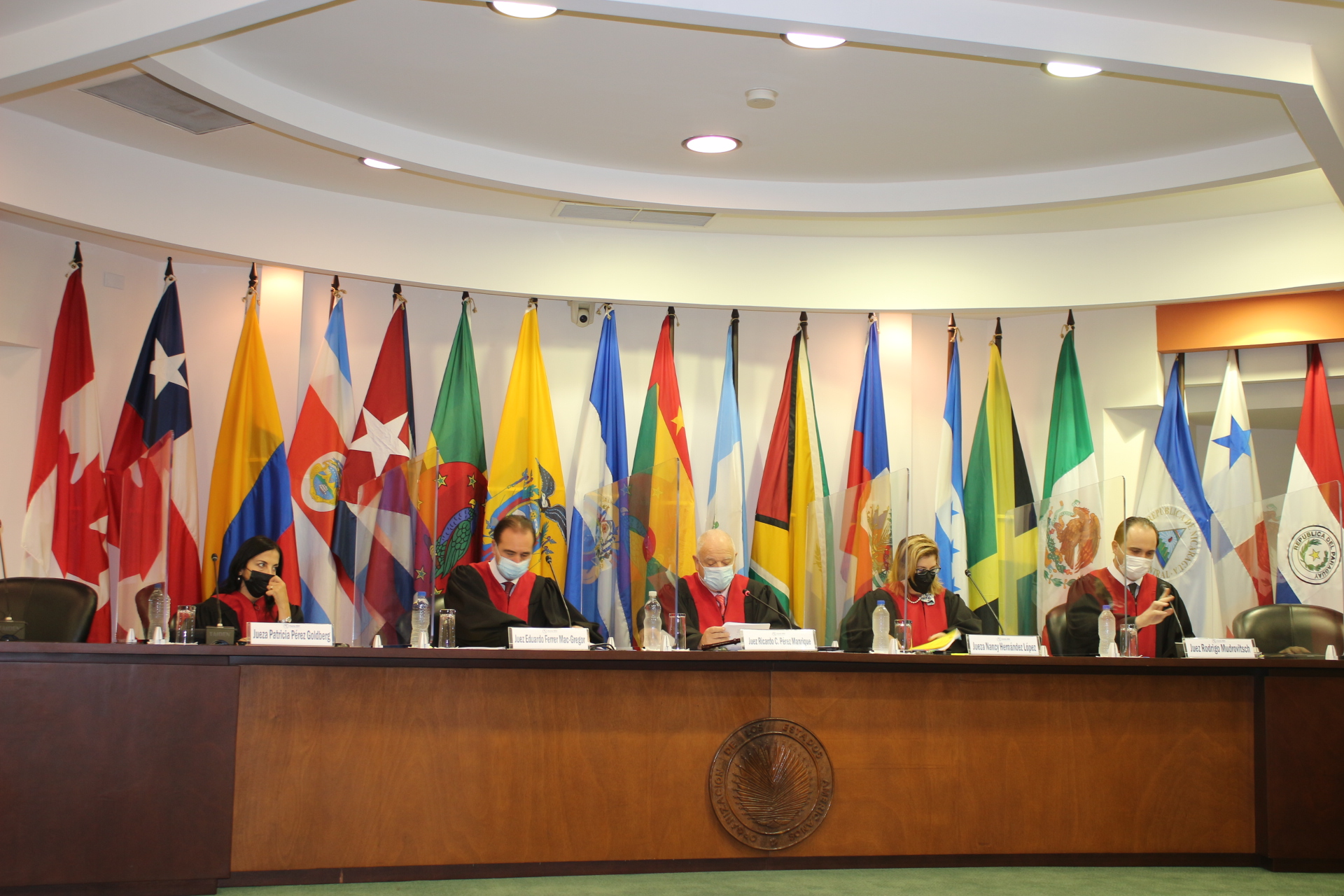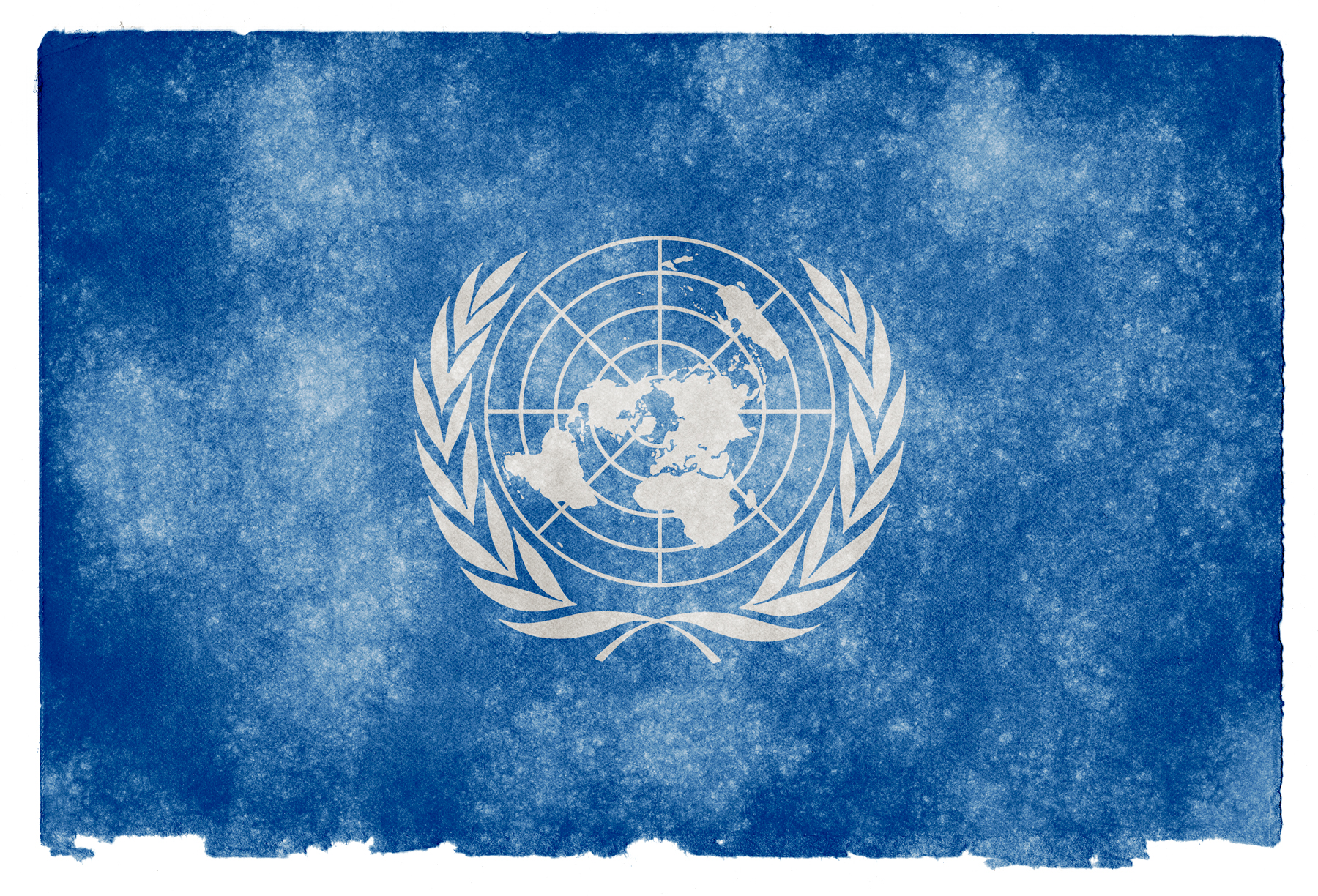During the 40th session of the Human Rights Council, Special Representative of UN Secretary-General and Head of MONUSCO Leila Zerrougui shed light on the new paradigm the Democratic Republic of Congo (DRC) is entering. While the State must pursue its efforts to lay foundations for strong democratic institutions, it must ensure fundamental rights and freedoms are not strained in the attempt to do so and past human rights violations do not go unpunished. “The major step that was taken through these elections should not obscure the remaining major challenges, which could still threaten peace and security in the DRC but also and above all the stability of the country’s new institutions”, she recalled.
However, reiterating the State’s commitment to human rights in official statements can no longer be tolerated if it does not translate into effective promotion and protection measures. Indeed, the former government resorted to violence, arbitrary arrests and detentions on a regular basis to stifle dissident voices and prevent them from bringing into the open the government’s strategies to maintain the status quo. The National Congolese Police and the armed forces are the main perpetrators of human rights violations (61%),[1] on claims of extrajudicial or summary executions, torture, sexual aggressions and forced labour, inter alia, especially in the North and South Kivu, Katanga and Kinshasa provinces.[2]
The difficult electoral period was no exception to the violent repression, proving to be rife with examples of human rights violations. As a case in point, on 14 December 2018, thirteen members of the LUCHA movement were arbitrarily detained for raising awareness about electoral rights among the population of Kinshasa[3]. Seven members who protested to demand their release in front of the police station were also arrested. They were all set free on 17 December 2018[4]. Then, no later than a day after the presidential elections were held, on 30 December 2018, the government suspended internet connections for several days in an attempt to prevent riots from forming. This attempt to restrict freedom of expression and to prevent public demonstrations hampered the work of HRD who could neither monitor the development of the situation nor access or circulate information.
This comes as a result of the restrictive legal framework elaborated[5] under Joseph Kabila’s administration. It criminalises peaceful protests, the expression of dissent and any activity which could disturb the established public order, instead of guaranteeing freedom of speech, association and assembly and the right to peaceful protest, all respectively enshrined in the Constitution under articles 24, 37, 25 and 26. Furthermore, in spite of all the mechanisms created used as proof of the government’s commitment[6], the protection and support of civil society, including human rights defenders, is still clearly insufficient due to a lack of political will. The level of implementation of protection mechanisms has further been lowered by a lack of financial means – although assigned, the budget was not allocated.[7]
In this vein, ISHR is seriously concerned about a draft law on the protection and accountability of human rights defenders which was approved unanimously by the Senate on 25 May 2017. It was elaborated to modify the Law n° 004/2001 on Association without Lucrative Purpose of 20 July 2001,[8] which is part of the restrictive laws package. Initially, the UNJHRO and civil society organisations acknowledged the efforts undertaken to provide defenders with the necessary protection to pursue their activities in the national territory. However, the evolution of the draft law has cast doubt upon the State’s commitment to comply with its obligations and to bring all national laws into line with international standards. As reported by the National Human Rights Commission (CNDH), due to the modifications made by the Political, Administrative and Judiciary Commission at the National Assembly on 19 October 2017, it is now a restrictive bill.
Composed of 8 chapters and 47 articles, the core provisions of the National Assembly’s version focus on the legal regime of defenders, in an endeavour to further hinder the access to legal personality and restrict their organisation, operations and funding. Indeed, while articles 7 to 12 establish discriminatory and restrictive requirements such as age and education qualifications, articles 13 to 15 include obligations regarding defenders’ activities and articles 16 to 18 state that defenders must gather in regional and territorial thematic platforms.[9] According to the law, only those who belong to an NGO can be considered as human rights defenders. This is highly inconsistent with the resolution A/RES/53/144 of 9 December 1998 on the protection of human rights defenders.
As UN Special Rapporteur on freedom of assembly and association Clément Nyaletssosi Voulé declared, the draft law expressly makes provisions for the prohibition of non-governmental organisations whose objective is to provoke “political turmoil” and to “discredit institutions”.[10] This implies a subjective appreciation by the authorities of the activities and motives of the organisations. NGOs are thus stripped of their autonomy. The draft law allows excessive control and interference from the State[11] and focuses on the sanctions and legal proceedings entailed by the alleged failure of NGOs to comply with their duties, as laid out in chapters VII and VIII.[12] It is worth noting though that it contains a slight improvement, as legal proceedings, arrests and searches are contingent upon the authorisation of the Public Prosecutor.
Notwithstanding these pitfalls, now is the time for the new DRC authorities to bring about change. The DRC must follow through its commitments and obligations. As he presented his programme for the first hundred days of his mandate on 2 March 2019, President Felix Tshisekedi announced measures to enable displaced Congolese in neighbouring provinces and political exiles to return. He also declared presidential pardon and parole would respectively be granted to political prisoners and detainees charged with opinion crimes, especially during electoral protests, in accordance with the national legislation requirements.[13],[14]
Both the Security Council and the Human Rights Council have underscored the political will of the new government to combat impunity, corruption and to investigate all human rights violations allegations to effectively hand down justice.[15] During the UPR pre-session on the DRC, the representative of the Synergie des Organisations de la Société Civile Congolaise pour les Droits civils et politiques recognised that since Felix Tshisekedi took office, strained civic space has slowly and slightly been opening in spite of the urgent need for effective protection measures.
In light of this, ISHR calls on the DRC to take the necessary measures to put an end to impunity, which has shielded perpetrators of gross human rights violations and crime against humanity from justice for too long now. As Congolese Human Rights Minister Marie-Ange Mushobekwa admitted herself: “without justice, there will never be lasting peace in the DRC”. It is thus high time justice is handed down, including when it seeks to investigate into unlawful actions of state agents, security and defence forces and hold them accountable. Moreover, the DRC must take a different course of action, in line with the good practises observed in neighbouring countries such as Côte d’Ivoire, Burkina Faso and Mali, and with all relevant legal instruments, the Paris Principles and the UN Declaration on human rights defenders.
[1] Declaration by Andrew Gilmour, Enhanced Interactive Dialogue with High Commissioner on report on the DRC, 40th session of the Human Rights Council, 19 March 2019.
[2] MONUSCO, “RDC: L’ONU signale des centaines de violations des droits de l’homme dans un contexte de détérioration de la situation sécuritaire au Nord-Kivu”, https://bit.ly/2FuoFYc
[3] Fédération Internationale des Droits de l’Homme, “RDC : Arrestation et détention arbitraire de 13 membres de LUCHA”, https://bit.ly/2Fr2RwE
[4] Organisation Mondiale contre la Torture, “Congo, Rép. Dém.: Arrestation et détention arbitraire de 13 membres de LUCHA”, https://bit.ly/2Fs05aq
[5] The framework consists of the Decree-Law n° 196/99 establishing the Congolese Civil Code, the Decree-Law n° 004/2001 on Associations Without Lucrative Purpose of 20 July 2001, the Law n° 96/002 on Freedom of Press of 22 June 1996 and the Law n° 2004/16 on Terrorist Acts of 19 July 2004.
[6] This, in spite of the creation of the National Human Rights Commission in 2011, the Ministerial Decree n° 2019/2011 on the creation of protection cells for defenders of 13 June 2011, the Decree 09/35 on the creation of liaison entities between governmental institutions and NGOs of 12 August 2009 and the Edit n° 001/2016 on the protection of HRD and journalists in Kivu provinces of 10 February 2016. In that regard, we can also mention the insufficient representativeness of civil society among members of liaison entities.
[7] Comité des Droits de l’Homme des Nations Unies, “Observations finales concernant le quatrième rapport périodique de la République Démocratique du Congo”, https://bit.ly/2HGaRgX
[8] Commission Nationale des Droits de l’Homme, République Démocratique du Congo, “Questionnaire pour les Etats, organisations internationales et Institutions Nationales des Droits de l’Homme sur la situation des défenseurs des droits de l’Homme”, https://bit.ly/2U9mNNU
[9] CNDH-RDC, “Memo de la CNDH au Parlement et au Gouvernement au sujet de la loi relative à la protection des défenseurs des droits humains”, https://bit.ly/2CBxj6N
[11] CNDH-DRC, “Questionnaire pour les Etats, organisations internationales et Institutions Nationales des Droits de l’Homme sur la situation des défenseurs des droits de l’Homme”, https://bit.ly/2Czyuni
[12] Rapport de la Société Civile au Comité des Droits de l’Homme, “Examen du 4ème rapport de la République Démocratique du Congo sur la mise en œuvre du Pacte International des droits civils et politiques”, https://bit.ly/2YnAkk8
[15] United Nations Security Council, “The situation concerning the Democratic Republic of Congo, Securty Council 8486th meeting”, https://bit.ly/2UW0Ejc




